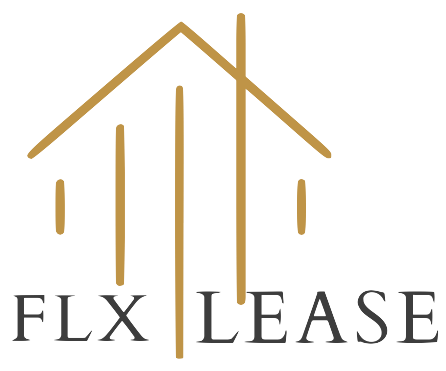
Condo vs Apartment: Which is Right for You?
Finding the perfect place for a mid-term stay—longer than a typical vacation but shorter than a traditional lease—can be challenging. A common dilemma is choosing between a condo and an apartment. While both offer comfortable living spaces, they differ in ownership, management, flexibility, and amenities. Understanding these differences is crucial to selecting the best fit for your needs.
In this guide, we'll explore the distinctions between condos and apartments, focusing on aspects that matter most to mid-term renters. By the end, you'll have a clearer picture of which option aligns with your lifestyle and preferences.
Understanding Your Mid-Term Rental Options
What is a Condo Rental?
A condominium, or condo, is a privately owned unit within a larger residential complex. Each unit is individually owned, but common areas and amenities are shared among all residents. When renting a condo:
Ownership: You're leasing from an individual owner, not a corporation.
Variety: Units often come with unique features, furnishings, and personal touches.
Platforms: Many condos are listed on platforms like Airbnb, Vrbo, or through private agreements.
This setup can offer a more personalized living experience, as each condo reflects the owner's tastes and upgrades.
What is an Apartment Rental?
An apartment is a unit within a building or complex owned and managed by a single entity, typically a property management company. Renting an apartment means:
Uniformity: Units have similar layouts, designs, and amenities.
Management: A professional team handles leasing, maintenance, and tenant relations.
Leasing: Standardized processes and terms, often with less flexibility.
Apartments provide a consistent living experience, which can be comforting if you prefer predictability.
Key Differences That Matter for Mid-Term Renters

Lease Terms & Flexibility
Condos: Individual owners may offer flexible leasing options, including month-to-month or 3-6 month terms, catering to mid-term renters.
Apartments: Property management companies often require longer commitments, typically 6-12 months, with limited short-term options.
Best for mid-term rentals? Condos, due to their adaptable lease terms.
Pricing & Fees
Condos: Rent varies based on the owner's discretion. Some may include utilities or HOA (Homeowners Association) fees in the rent, while others may charge separately.
Apartments: Rent is usually fixed, with additional costs for utilities, amenities, and parking.
Best for mid-term rentals? It depends. Condos might offer competitive rates, especially if owners are eager to fill vacancies, but apartments provide transparent, consistent pricing.
Furnished vs. Unfurnished
Condos: Often come fully furnished, equipped with the owner's personal furniture and appliances, ideal for those not wanting to invest in temporary furnishings.
Apartments: Typically rented unfurnished, though some complexes offer furnished units at a premium.
Best for mid-term rentals? Condos, as they save you the hassle and expense of furnishing a temporary home.
Amenities & Services
Condos: May offer upscale amenities like pools, fitness centers, concierge services, and unique features, depending on the owner's investments.
Apartments: Provide standard amenities accessible to all tenants, maintained by the management.
Best for mid-term rentals? Condos, if you're seeking high-end or unique amenities.
Maintenance & Support
Condos: Maintenance responsibilities fall on the owner. Response times can vary based on their availability and resources.
Apartments: On-site maintenance teams ensure prompt attention to issues, with standardized procedures.
Best for mid-term rentals? Apartments, for reliable and timely maintenance services.
Pros & Cons of Condos vs. Apartments for Mid-Term Renters
Renting a Condo
Pros:
Flexible Lease Terms: Ideal for mid-term arrangements.
Furnished Units: Move-in ready, saving time and money.
Unique Interiors: Personalized designs offer a homier feel.
Cons:
Variable Maintenance: Dependence on the owner's responsiveness.
HOA Regulations: Potential restrictions on activities, guests, or modifications.
Renting an Apartment
Pros:
Professional Management: Streamlined processes and support.
Consistent Amenities: Standard features across units.
Predictable Costs: Clear understanding of rent and additional fees.
Cons:
Rigid Lease Terms: Less accommodating for mid-term needs.
Unfurnished Units: Additional effort and expense to furnish the space.
Which One is Better for Your Mid-Term Stay?
Consider the following questions to determine the best fit:
Do You Need Flexible Lease Terms?
Yes: Condo rentals offer adaptable durations.
No: Apartments are suitable if you can commit to longer leases.
Do You Prefer a Personalized Living Space?
Yes: Condos provide unique, owner-specific designs.
No: Apartments offer uniformity and predictability.
How Important Are Amenities and Location?
High Importance: Condos may offer premium, unique amenities in desirable locations.
Moderate Importance: Apartments provide standard amenities, often in various locations.
Final Thoughts: Making the Right Choice for Your Rental Needs
Choosing between a condo and an apartment for a mid-term rental depends on your specific needs:
Flexibility: Condos typically offer more adaptable lease terms.
Furnishings: Condos are often move-in ready, while apartments may require furnishing.
Management: Apartments provide professional, consistent maintenance and support.
Evaluate your priorities, such as lease flexibility, desired amenities, and the importance of a furnished space. By aligning these factors with what each option offers, you can make an informed decision that suits your mid-term rental needs.
Finding the perfect mid-term rental can be daunting, but FLXlease simplifies the process. Offering month-to-month, fully furnished rentals nationwide, FLXlease provides flexibility and convenience for those seeking temporary housing solutions. With an easy online booking system featuring 3D tours, you can confidently choose your next home without the commitment of long-term leases. Explore their extensive listings to find a condo or apartment that fits your lifestyle and needs.
Get $50 Off Your Next Month's Rent!
FLXLease. All Rights Reserved © 2024


